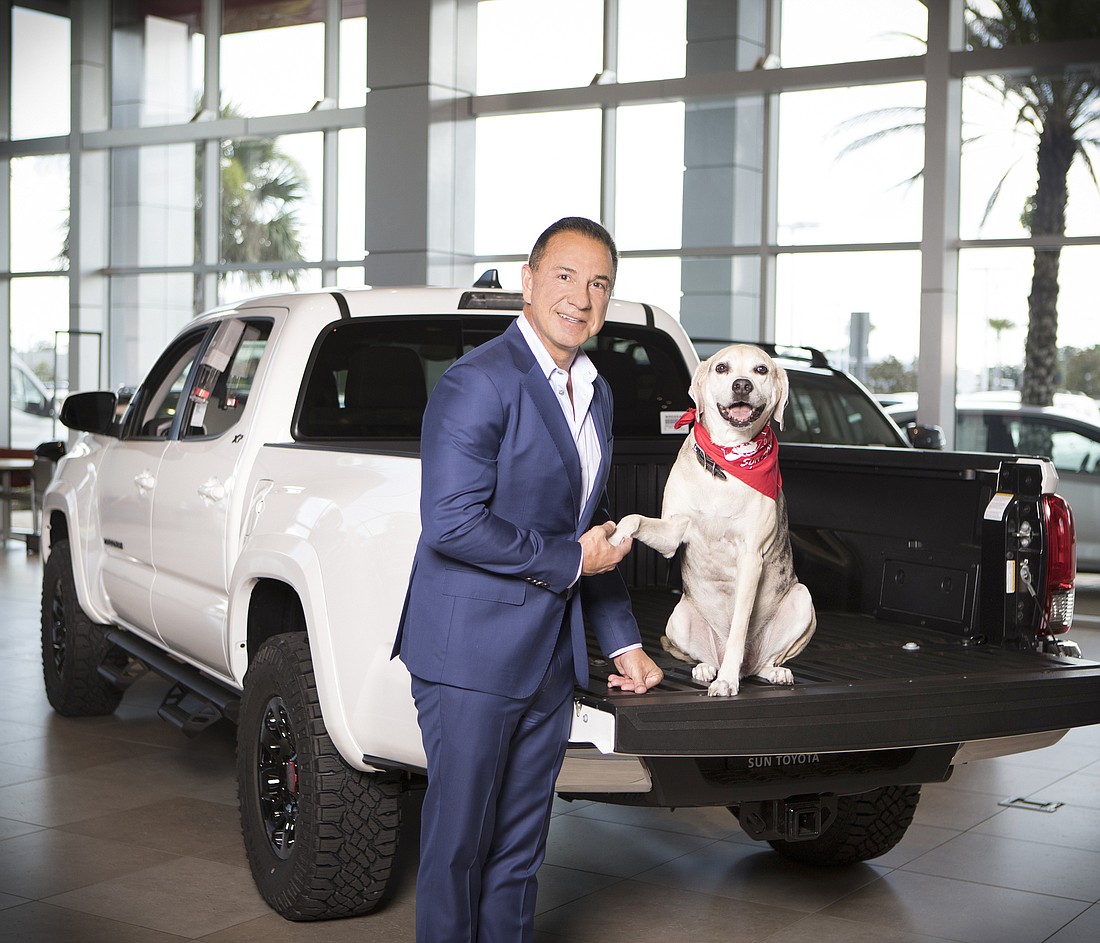John Marazzi, managing partner of Sun Toyota in Tampa and Brandon Honda, has been in the automotive industry since he was 12, when he had a part-time job washing cars. At age 17, he says, “I talked myself into my first sales job.”
But despite his decades of experience in the industry, during which time he’s survived numerous economic downturns, Marazzi, now 55, has never seen anything quite like the COVID-19 crisis.
“The coronavirus is a completely different story,” he says. “It’s been a very strange time. What’s really surprising is that I thought people would have contracted their spending a lot more than they have.”
‘You might have to close your eyes, pay a little more than you really want to and know that you’re going to have reduced margins, but it keeps the activity going.’ John Marazzi, Sun Toyota and Brandon Honda
Retail therapy, Marazzi says, could be a contributing factor. “I think it's deep down in the American DNA that when they have a little anxiety or depression, people like to spend money and treat themselves to new things. I’ve talked to people in the boat industry and the RV industry, and everybody's out of inventory now because manufacturers panicked and cut supply, and demand did not go down anywhere near what everyone thought it would.”
Auto dealerships were deemed essential businesses during the pandemic, but Marazzi was not expecting sales to be as strong as they have been. He even thought he might have to rent space at a storage facility for excess inventory, but he’s had the opposite problem: Cars, particularly pre-owned vehicles, have been flying off the lot. Automakers, facing supply-chain issues, cut back on production of new vehicles, leading pre-owned/used inventories to drop to precipitously low levels.
The nationwide inventory of used vehicles is at 32 days, well below the average of 45 days, according to research and auto website firm Cox Automotive. New car inventory is also down, from 86 to 67 days.
But Marazzi, looking at inventory levels, zigged when others zagged. He chose not to reduce new-car inventories at Sun Toyota and Brandon Honda, primarily because low interest rates lessened the impact. That meant his dealerships had more choices for buyers who, because of the pandemic, had more time on their hands to research exactly what vehicle and options they wanted.
“The cost of carrying that extra inventory was next to nothing,” Marazzi says. “If you’re not selling new cars and trading in cars, you’re not feeding your used-car operation. So, for April, May, June and July, we broke our all-time record for pre-owned vehicle sales, each and every month better than the last. And it was simply due to the fact that we had the new car inventory to trade cars that would supply our used-car demand. We managed our inventories a lot better than most people did.”
Although sales are stronger than anticipated, Marazzi expects profit margins to drop while the economy continues to struggle. Automakers are offering greater incentives and discounts on new vehicle sales, while dealerships are having to buy used cars from rental companies and at auctions, where they often pay a premium to get the most desirable stock. But he can live with reduced profits.
“You can’t sell it if you don’t have it,” Marazzi says. “So you might have to close your eyes, pay a little more than you really want to and know that you’re going to have reduced margins, but it keeps the activity going. You attract and keep the best salespeople, the best managers and you’re not having your customers go to another business. Plus, you’re earning a customer for future service business. Good things happen when you figure out how to put a car deal together.”
— Brian Hartz






